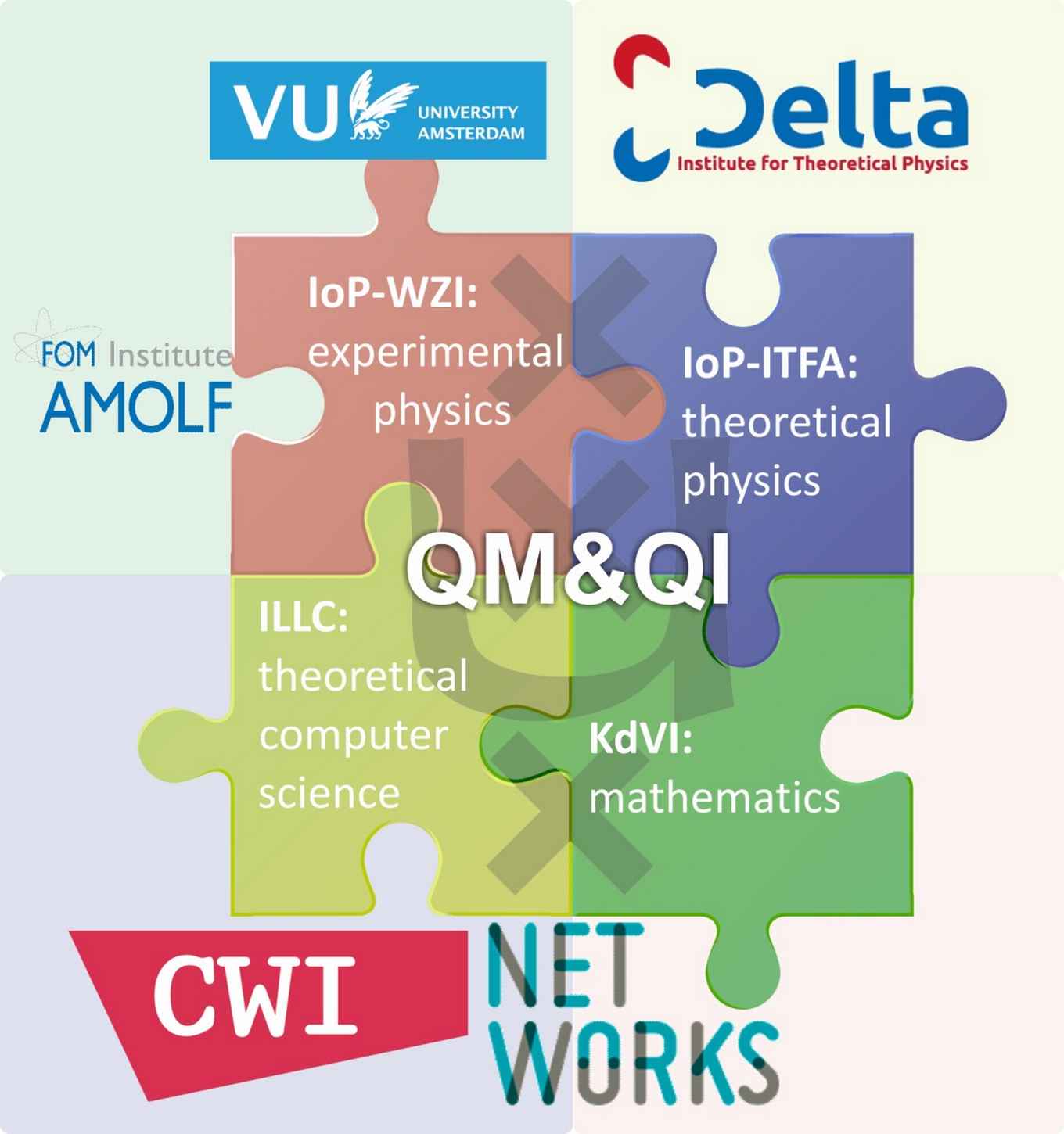Quantum Matter & Quantum Information
Research Priority Area at the University of Amsterdam

Many players in the field agree: the next paradigm shift in information processing will be the quantum revolution. Equally clear is that this breakthrough demands a continuous exchange of insights and results between computer science, experimental and theoretical physics, and mathematics. At UvA, great strides have been made in these individual disciplines. Recognizing that the newly approved UvA Research Priority Area (RPA) Quantum Matter & Quantum Information (QM&QI) is ideally situated right at these crossroads, the next step is the formation of a single research center. This will further unite the different disciplines, taking full advantage of the joint Science Park location.
In the coming few years, resources will be bundled to strive towards the game-changing goal of quantum computation, and en route the expectations are high for science of great impact resulting from coordinated and multidisciplinary efforts in areas in which the Amsterdam consortium already plays a leading role, such as: multi-particle entanglement, topological protection, quantum cryptography and theory of strongly interacting quantum matter. Not only are these themes suited to the aim of speeding the advent of quantum computation and information processing, they also enable maximal positive feedback from new quantum-information and information theoretical approaches into important, difficult problems in physics such as the development of a predictive description of complex, strongly interacting quantum systems.

Five UvA research groups are active in the area of Quantum Matter & Quantum Information, bundling the expertise of three UvA research institutes −Institute of Physics (IoP), Korteweg-de Vries Institute (KdVI), Institute for Logic, Language and Computation (ILLC)− and involving the NWO's Center for Mathematics and Computer Science (CWI).
- Experimental Physics (IoP-Van der Waals-Zeeman Institute): Quantum Gases and Quantum Information and Quantum Electron Matter
- Theoretical Physics (IoP- Institute for Theoretical Physics Amsterdam): Low-D Quantum Condensed Matter and Quantum Information
- Mathematics (KdVI): Algebra, Geometry and Mathematical Physics
- Theoretical Computer Science (ILLC / CWI): Quantum Computing.
The multidisciplinary approach of the QM&QI RPA is well suited to speed up breakthroughs in the field and this, in turn, will boost innovation and valorization. In the long term, quantum information and quantum technologies will become pervasive and permanent cornerstones of activities across science, with impact on society as a whole.